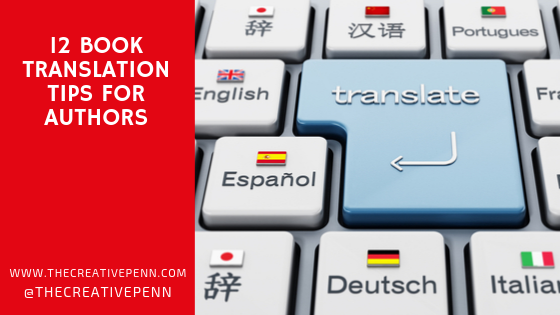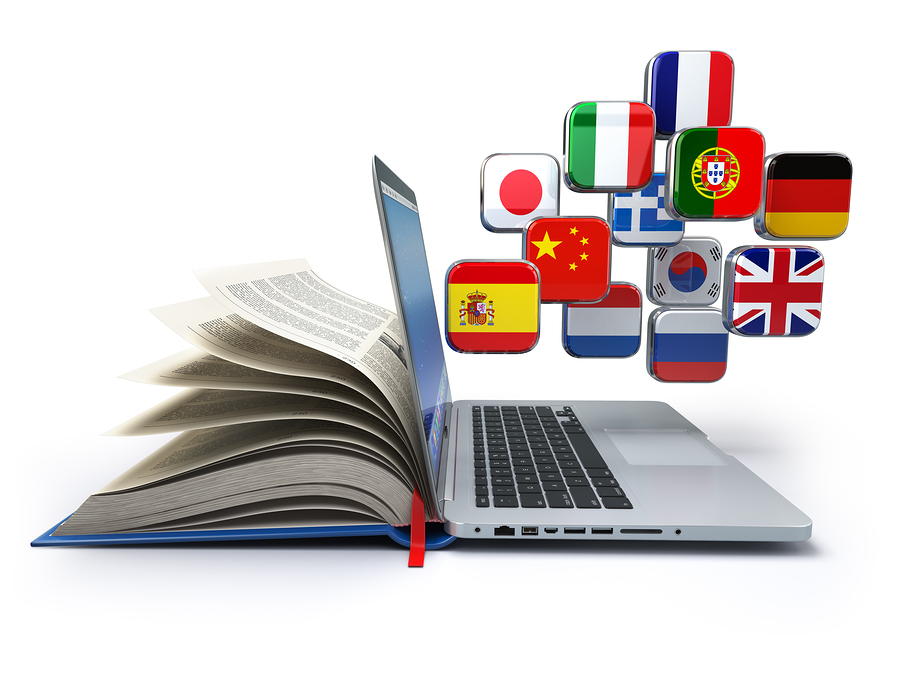Once authors have started to sell in their native language, many turn to new markets and translation is becoming more popular among indie authors as digital sales expand in other territories. I first translated books in 2014 but found the lack of marketing tools made sales almost impossible, so I pulled out in 2016.
But in recent months, I have gone back into translation, first in German, with an eye on other markets. We now have marketing options like auto-targeted Amazon Ads in some countries and digital sales are expanding. In this article, Ofer Tirosh offers some tips on what to consider if you are interested in translation.
Writing a book is hard enough in one language. But now that your blood, sweat, and tears have dried with the ink on your pages, you are probably thinking about maximizing the number of readers who can read what you wrote.
After completing your book and marketing in your native tongue, the natural next step is to translate your book for additional markets. Here are some questions and answers to get you started on this multilingual journey and offer some best practices and tips.
This article is intended primarily for authors who have published in one language and seek to expand their reach. The easiest way is by reaching beyond their local language and home markets to additional ones. But non-authors may find some valuable tidbits as well: translators or publishers who are considering expanding to new markets.
1. Is translation worth the extra effort and expense?
The first obvious question when considering book translation is this: Should I even bother?
The answer to this one is equally self-evident, IF (1) you have shown you can attract readers to your writing in your native tongue and country, and (2) want to reach more readers, and (3) the content of your book is of relevance to someone outside your homeland and home language, THEN the effort in terms of time and money of translation is low — relative to authoring new content. But read on….
[Note from Joanna: I would also add that you must have an ability to market your book in that language. Either you have to work with marketing partners, or you can use established methods of marketing like KU + Amazon Ads or Facebook Advertising. Without book marketing, you won’t sell any books!]
2. Which foreign markets give you the biggest bang for your translation buck?
Obviously, the answer to this question will vary from book to book and market to market. Do your homework, and ask yourself the following sub-questions:
- Which markets will find my book most interesting or relevant?
- Which of these have the most readers?
- Can I reach these readers through Amazon or do I need help with distribution and other platforms?
- How much will each of these markets cost me to enter?
- And are there ways to translate into multiple languages at once to get the best return on my investment?
All these questions require serious research. Don’t skimp. Weak research can cost you big time later. Once you decide where you want to go, the next question is how.
Who Will Translate Your Book for You?
There are two basic ways to do a professional book translation: with freelancers or translation agencies. Let’s consider both options, in that order.
3. Auditing the book translation process: How do you get a second opinion?
The usual way is with one translator per language, but we have learned that this approach is fraught with risk and can impact quality. Just like in medicine, it’s always a good idea to look around for several offers.
Even after you decide on one, do a small sample and then get a second opinion from another linguist in that language to check the work of the first. Then send the proofed work back to the translator and do a final round. Prepare all parties for this process in communications and in contracts. The incremental expense is an excellent investment to ensure the quality of your translation.
4. What are the pros and cons of working directly with freelance translators?
There are armies of freelance translators on offer for every language, and there are freelance platforms like Upwork, Freelancer and Fiverr from which to choose them. These platforms give you profiles for each, containing ratings and reviews.
So you can more easily and confidently make a selection, with that said, do an intensive vetting, as described in the answer just above and at the very end of the process, save something in your budget for an independent proofing round of the translation work.
[Note from Joanna: Other translation options are dedicated portals like Proz or TranslatorsCafe. LinkedIn is another place to search for translators, as is your national translators association.]
5. What are the advantages of working with professional translation agencies?
If you are not hard-pressed for cash, this is a no-brainer. A professional agency, with experience in books, is the fastest and easiest way to get a quality translation. The incremental cost you pay to a translation company would likely pay for itself with reduced time and aggravation.
Instead of vetting individual freelancers, and supervising their work, you have a professional translation management team, with already-vetted translators, with the translation agency assuming responsibility for the accuracy and meeting deadlines.
Typically, translation agencies will do a sample translation free or charge or at a nominal cost. An agency will also be able to more efficiently handle multiple languages at the same time or advise you about sequencing multilingual translations.
6. What are book translation services likely to cost?
Kindlepreneur assembled an excellent survey of dedicated book translation services. Babelcube will translate your book for free but take a hefty 15% from your royalties.
Most high-end book translation agencies will offer you a free quote for your job, while others provide per-word translation rates, starting for 2 or 3 cents per word for machine translation up to $0.15/word for human editing and translation.
Is Machine Translation a Viable Option for Authors or Translation Agencies?
7. Are there “do it yourself” translation tools for authors?
Faced with those sobering costs, there are freelancers and even authors who opt to work with machine translation software like Google Translate or DeepL and do it themselves. While book translation software or a book translation app may appear cheaper than working with an agency on a per-word basis – assuming that your time has no value — the result is likely to be gobbledygook in places.
You can ameliorate the situation if you work with an editor or proofreader in the target tongue, but then you can expect to pay rates of a freelancer on the low-end, or an agency on the high-end.
[Note from Joanna: I am in the final stages of producing 3 books in German. I used www.Deepl.com for the first draft and then worked with editors and proofreaders in German to perfect the manuscript. It has certainly cut down my translation costs but machine translation is definitely only a first draft!]
8. Which translation software services are used by translation agencies?
There’s an entire class of translation tools that support professional translation services. Software, as a service translation tool, like MemoQ, Smartling and SmartCat are targeted more towards translation companies, rather than individual authors. For the individual author, considering the acquisition of such software would be overkill.
How to go into a book translation project with eyes wide open
9. Do your homework
Look before you leap. Solicit multiple bids, get clear quotes from multiple freelance translators or book translation agencies, then collect (free) sample translation from your final candidates.
See if the candidate has experience working with books like yours in the target language. Check the ratings and reviews of the candidate’s book translation agency or translator. Review the contract for potential hidden costs or extra fees.
10. Understand the interaction
Check if you will have direct access to the translator or a project manager. Ascertain how much input and interaction you can have in the process, and whether you reserve the right to reject a translation without penalty or give feedback and corrections. Make sure you retain full ownership over your translations. Get a clear schedule, get a guarantee, and establish penalties for slippage.
11. Do the math
Given the word count of your original, what will be the total price of your translation project? How does the expected cost of translation compare with projected royalties?
Ultimately, book translation services costs that have an intelligent human agent are likely to average around $0.10 and go to twice that much, all in. You can expect a typical 60,000-word book to set you back at least $6000.
Look at the bottom line
Calculate how many foreign book units should be sold before you can break even with the cost for translation. Based on your research of the target market, you can project how likely it is that you will be making a profit. These are sobering considerations, but better to know now than to know later — that is, too late.
Have you considered translating your books into other languages? Please leave your thoughts below and join the conversation.
 Ofer Tirosh is CEO of Tomedes, a professional translation services and localization company that specializes in helping authors translate their books. Tomedes offers free, no-obligation quotes, supports more than 90 languages, and guarantees to fix without cost any error found in its translations for a full year.
Ofer Tirosh is CEO of Tomedes, a professional translation services and localization company that specializes in helping authors translate their books. Tomedes offers free, no-obligation quotes, supports more than 90 languages, and guarantees to fix without cost any error found in its translations for a full year.




